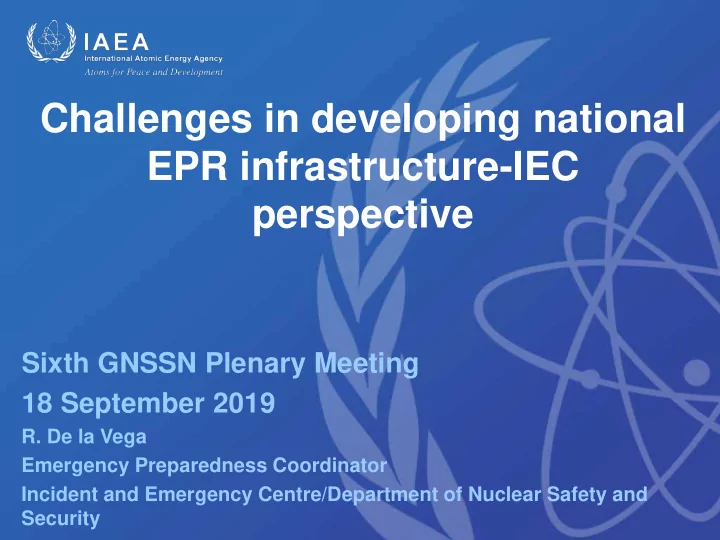

Challenges in developing national EPR infrastructure-IEC perspective Sixth GNSSN Plenary Meeting 18 September 2019 R. De la Vega Emergency Preparedness Coordinator Incident and Emergency Centre/Department of Nuclear Safety and Security
Overview of Infrastructure for EPR • Different players and stakeholders involved • In addition to Operator and Regulator, a number of response agencies with limited knowledge in nuclear/radiological topics are involved as well • Strong need for coordination • Need to respond to nuclear or radiological emergencies irrespective of its origin (safety or security related events) • Possibility of transboundary emergencies: need for harmonization of national EPR arrangements
What we’ve observed (from EPREV and other EPR related missions) • Uneven development of infrastructure among countries with similar nuclear/radiological programs and hazards • Sustainability is a challenge. Isolated/not coordinated initiatives have limited effects in time • Well developed self-assessment is a key prerequisite
What has been done • EPRIMS: an Agency IT Platform to support self-assessment and help MS to better manage and share EPR related information • Activities in support of capacity building in EPR. Mainly aimed at training and Human Resources development • Activities to support GSR Part 7 as a reference for harmonization of EPR arrangements
What has room for being improved • Better engage beneficiary MS, by promoting ownership of the programs • Develop overall view, coordination and synergies among all the activities developed by the Agency to support MS in strengthening national safety infrastructure and the resources been mobilized • Better monitoring of progress and taking steps towards sustainability
Thank you!
Recommend
More recommend